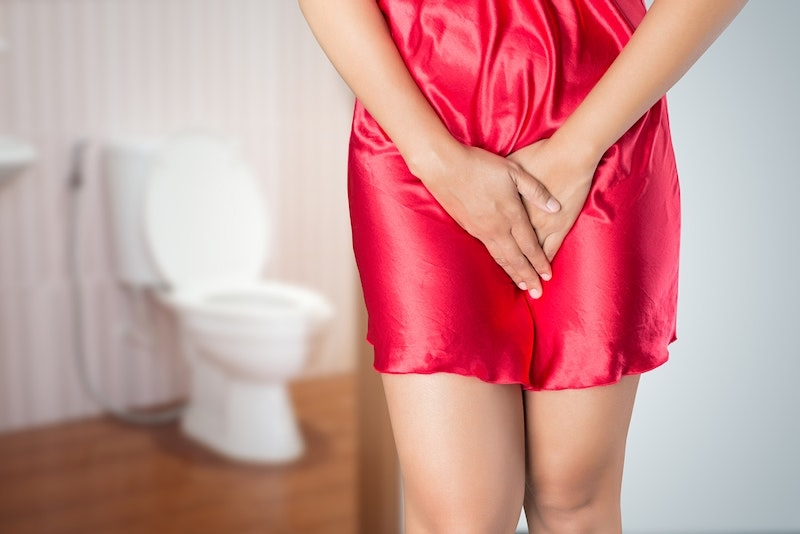
People often assume that plastic surgery procedures only help to correct cosmetic concerns. While many people do seek out plastic surgery because they want to improve their appearance or correct a physical issue they feel self-conscious about, plastic surgery can also sometimes help to treat or correct a medical issue.
That’s often the case with abdominoplasty, AKA a “tummy tuck.” People often have a tummy tuck to help make their stomach look flatter and smoother. It’s one of the most popular procedures after childbirth and is a key surgery in the ‘mommy makeover‘ combination procedure, as it resolves stretched-out skin and tightens separated muscles in the stomach area.
But a tummy tuck can have more than just aesthetic benefits for women who have had children. It might also help to reduce or correct stress urinary incontinence, which often develops after a woman has given birth.
What is Incontinence?
Incontinence is a term that describes the accidental release of urine from the bladder. There are several forms of incontinence, such as urge incontinence or a feeling that you ‘have to go,’ and stress urinary incontinence.
In the case of stress urinary incontinence, urine might leak out whenever there is any pressure or force placed on the bladder. Sneezing, laughing, or crying can all cause urine leakage, as can physical exertion such as exercise.
The pelvic floor muscles support the bladder and urethra. Stress urinary incontinence can develop when these muscles become weak. The muscles around the urethra can also become weak, causing urine to leak. Childbirth, particularly a vaginal birth, can contribute to the weakening of both muscles.
How is Incontinence Usually Treated?
In many cases, stress urinary incontinence is treated through lifestyle changes. Often, the focus of treatment is on strengthening the muscles of the pelvic floor. Kegel exercises can be particularly effective when it comes to building up muscle strength and minimizing the symptoms of stress incontinence.
Some women with stress incontinence also find that they need to retrain their bladders. They are often encouraged to drink a lot of water so that they urinate up to six times a day, which can reduce the likelihood of urine leaking.
If a person with stress incontinence is overweight, losing the extra weight can also help to alleviate incontinence symptoms in some cases.
What is a Tummy Tuck?
A tummy tuck is a surgery that focuses on slimming and flattening the abdominal area. The goal of the procedure is often to restore a more youthful, tight, and toned look to the body. During the surgery, a plastic surgeon removes extra fat deposits from the abdomen, tightens the abdominal muscles, and trims away any excess, loose skin.
Several different types of tummy tucks can be performed. A mini tummy tuck is the least invasive option while a full tummy tuck is the most comprehensive. Whether a mini or a full tummy tuck is right for an individual patient depends on how much extra skin and fat they have and how dramatic they want their results to be.
Usually, a tummy tuck surgery takes a few hours to perform. It often requires about two weeks of time off from work and other activities for the initial recovery period. After about six weeks, many people are able to start exercising and participating in other vigorous activities once again.
How
If the focus of a tummy tuck is typically cosmetic, how can it help to strengthen the muscles and improve stress incontinence?
Some tummy tuck surgeries include the tightening of the muscles in the abdominal area.
For some patients with incontinence, having the abdominal muscles tightened during their surgery has been helpful in improving their incontinence symptoms.
If You Have Incontinence, Should You Have a Tummy Tuck?
If you are dealing with stress incontinence, either after childbirth or for another reason, if you’re 18 or older, getting a tummy tuck might seem like a good option. But it’s important to note that scheduling a complicated, invasive surgery usually isn’t the first course of action when it comes to treating stress urinary incontinence.
Most likely, Dr. Vitenas will recommend other, more conservative treatment options first.
That said, if you’re thinking about a tummy tuck anyway because you’re interested in flattening your abdomen, you might be pleasantly surprised to find out that it also helps improve your incontinence. Incontinence shouldn’t be the main reason you choose to have a tummy tuck. But improving this annoying condition can be the icing on the cake.
In Houston, Texas, and the surrounding areas, board-certified plastic surgeon Dr. Paul Vitenas regularly performs tummy tucks on Houston patients who want to look and feel their best. He’s happy to discuss the various benefits of a tummy tuck with patients and to help them make an informed decision about their treatment options. To learn more, call 281-484-0088 to schedule a consultation today.
